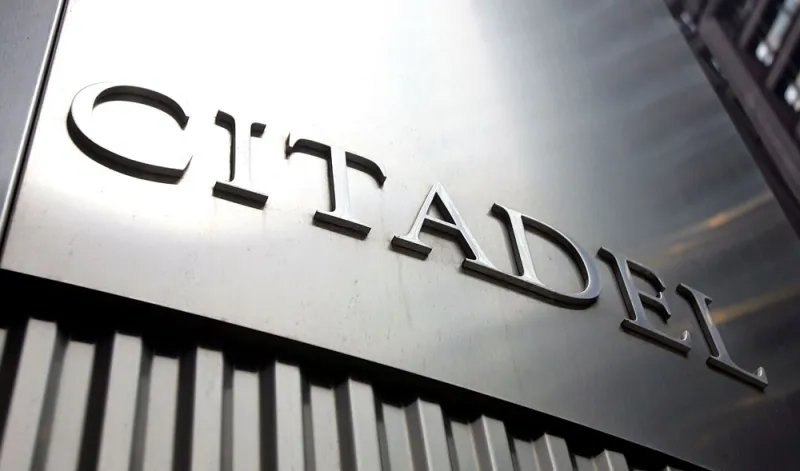Citadel Securities’ outsize role in the capital markers has gotten the attention of regulators.
Gary Gensler, the new chairman of the Securities and Exchange Commission, honed in on Citadel in prepared remarks delivered to a Thursday hearing of the House Financial Services Committee, which is looking into the GameStop trading fracas in January.
The GameStop debacle resulted in sharp price hikes in so-called meme stocks, leading to restrictions on trading by broker dealers and resulting in losses among hedge funds and retail investors alike. In the process, the trading frenzy also raised questions about market structure and those who benefit from it.
Citadel Securities, a market maker, emerged as a key player in January’s market events because of its acknowledged role in buying order flow from Robinhood, a retail trading app, whose customers sent GameStop shares temporarily soaring from $20 to $480.
Payment for order flow is a controversial practice and has been banned in Canada and the U.K. In the U.S., Robinhood has already settled one SEC enforcement action on the practice.
When it comes to broader systemic issues, Gensler said payment for order flow gives the buyers — like Citadel — a “competitive advantage” in the capital markets.
“Unlike public exchanges that must offer fair access to their publicly displayed quotes, these wholesalers can decide whether to execute these orders directly or to pass them along to be executed by the exchanges or other trading venues,” he explained in his remarks. “In addition, the wholesalers get valuable information from this order flow that other market participants get with a delay, if at all. In many aspects of the economy, from social media to search engines, access to data is a growing competitive advantage. Our capital markets are no different.”
Regulators, Lawmakers Raise Concerns About Citadel
In his testimony, Gensler specifically singled out Chicago-based Citadel. “One firm, Citadel Securities, has publicly stated that it executes about 47 percent of all retail volume,” he said. “The high concentration of retail orders routed to a small number of wholesalers raises a number of questions about market structure. In essence, does this segmentation and related sector concentration best promote fair, orderly, and efficient markets?”“History and economics tell us that when markets are concentrated, those firms with the greatest market share tend to have the ability to profit from that concentration,” he continued.
Gensler added that “issues of concentration… may increase potential system-wide risks, should any single incumbent with significant size or market share fail.”
Rep. Maxine Waters, the California Democrat who chairs the committee, shared that view. “I question whether Citadel poses a systemic risk to our financial markets,” she said in her opening remarks.
But most of the discussion about payment for order flow focused on what Gensler acknowledged are potential conflicts of interest between the broker, who receives the payment, and the retail investor who may not be getting the best execution for his trades as a result.
“Do you see a problem with one firm like Citadel having so much power?” asked Rep. Jesus Garcia, a Democrat from Illinois.
“It does raise questions about… whether the pricing is not benefiting from as much robust competition,” Gensler responded.
One congressman also raised concerns about market makers trading ahead of customers, mentioning a $700,000 fine Citadel Securities paid to the Financial Industry Regulatory Authority over that issue. (Citadel Securities did not admit nor deny wrongdoing.) Rep. Al Green, a Texas Democrat, suggested that such penalties are wrapped into the cost of doing business for billion dollar firms.
Gensler seemed to agree. “If the cost of the fine is so much lower than the benefit of the crime,” he said, “I’m not sure it is a deterrent.”
He noted that the SEC will be looking closely at these issues “to determine which policy approaches may be merited.”
According to Gensler’s planned remarks, the SEC is expecting to publish a staff report assessing the market events related to GameStop over the summer. The SEC chair said that he has “directed staff to consider whether expanded enforcement mechanisms are necessary.”
He highlighted seven factors “at play in these volatile events,” including gamification and user experience, payment for order flow, equity market structure, short selling and market transparency, social media, trade clearance and settlement, and system-wide risks.
Archegos Collapse Had a ‘Wider Impact’
While unrelated to the GameStop situation, Gensler also mentioned the collapse of Archegos Capital Management “and the significant losses incurred by several global financial institutions that provided prime brokerage services to Archegos” through the use of total return swaps.He said he has asked the SEC staff to consider recommendations for new disclosure requirements for total return swaps and other security-based swaps.
While hedge funds lost money during the GameStop fracas, Gensler added, it was the Archegos collapse that led to losses at banks and “wider impacts on the banking system.”
Thursday’s hearing is the third in a series that has included testimony from market participants, including Citadel CEO Ken Griffin.







